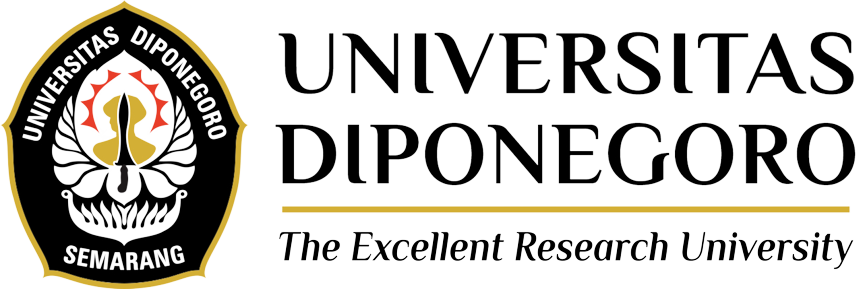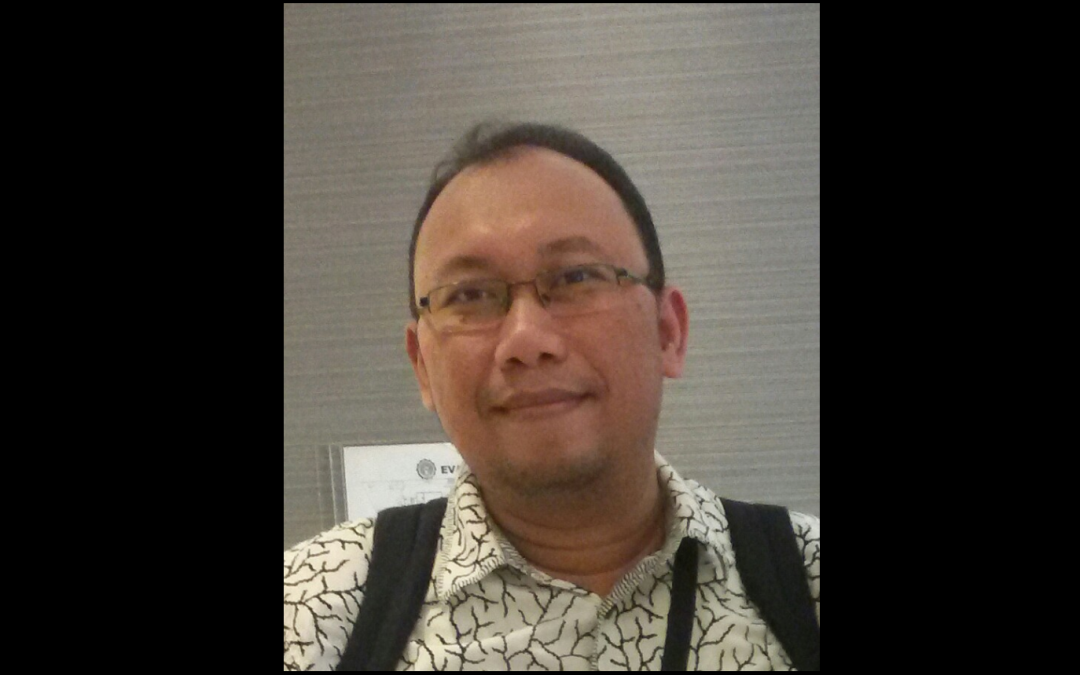“Civil Engineering of Diponegoro University has been established since 1958, so this year it is 63 years old, a fairly mature age for a department. Civil Engineering is almost as old as UNDIP itself, which was founded a year earlier, in 1957. Then our Civil Engineering Master Program was opened in 1998 and Civil Engineering Doctoral Study Program was established in 2004,” said Jati Utomo Dwi Hatmoko, ST., MM., MSc. , PhD. as the Head of Department of Civil Engineering, Diponegoro University.
The vision of Department of Civil Engineering, Diponegoro University, is to become a Civil Engineering educational institution that excels in teaching and research, while the mission of the Department of Civil Engineering at Diponegoro University is to provide high-quality education in the field of civil engineering supported by qualified academic and administrative staffs, to increase the number and quality international research and publications, to improve the quality of services to the community in solving development problems, to assist graduates in getting their first jobs and to make Department of Civil Engineering as a comfortable place to work.
According to Dr. Jati, job opportunities for Civil Engineering graduates are very wide open. Moreover, UNDIP Civil Engineering graduates are known for their quality, tenacity, and have high resilience. This means that they are not easy to give up on all the challenges faced. This is the result of a survey of one of the state-owned construction companies that has many UNDIP Civil Engineering alumni. In fact, many alumni are accepted in state-owned construction companies before they graduate, so these companies are competing to recruit graduates as early as possible since they are still in college.
“It is like whoever recruits quickly, they get the best. Some companies provide official bond scholarships to final year students. In terms of the needs of the construction industry itself, there are still many civil engineering graduates needed. The development of infrastructure projects that are echoed by the government currently requires many Civil Engineering graduates to fill them. In the future, I think that as long as the Indonesian nation continues to build, there will be a lot of need for Civil Engineering graduates,” he said.
In facing the challenges of learning in the digital era and Industrial Revolution 4.0, the Civil Engineering Department has made many efforts and strategies. Dr. Jati said that one of them is the implementation of Building Information Modeling. It is a method or platform that allows stakeholders in the construction industry (project owners, planning consultants, contractors, to users of built facilities) to work together digitally throughout the project life cycle, starting from the initial planning phase, construction phase, to the operation and maintenance phase. In the past, all processes were done manually, now with the implementation of Building Information Modeling, project implementation becomes more efficient in terms of time and cost. So there is 3D, 4D, 5D, 6D, 7D, up to the latest 8D. Building Information Modeling 3D is basic 3D modeling, 4D is related to scheduling, 5D is related to costs, 6D is related to energy, 7D is related to asset management, and 8D is related to safety. The government also encourages the implementation of Building Information Modeling through Government Regulation 16/2021 concerning Buildings; Regulation of Ministry of Public Works and Public Housing of Republic of Indonesia 22/2018; and PP 9/2021 concerning the Construction of State Buildings and Guidelines for Sustainable Construction.
“In responding to the development of the Industrial Revolution 4.0, Civil Engineering students are given materials of Internet of Things (IoT) and Building Information Modeling. IoT is a course as part of the mandatory curriculum at Undip. While Building Information Modeling course is only in Civil Engineering. So we equip civilian students with mastery of Building Information Modeling technology, considering that currently there is a great need for experts in the construction industry. We are also working with several Building Information Modeling software providers to introduce BIM to civilian students. Currently we are also an ATC (Authorized Training Center) of Building Information Modeling, one of the leading BIM vendors in Central Java. Thus our students can study and get a certification which shows they have mastered BIM,” he explained.
Higher education plays an important role, as a pioneer in the development and creation of science, technology and innovation as well as being a driving force in social transformation towards an advanced and modern society. Civil Engineering has produced many innovations, such as Development of Permeable Paving Blocks from Recycled Materials; Development of Public Building Investigation Audit Learning Database Platform; Quantitative Method of Evaluation of Building Shock Intensity Levels on Each Floor Due to Earthquake; Updating Road’s Surface Distress Index (SDI); Strengthening Method with Haunch Self Compacting Geopolymer Concrete (SCGC) on Reinforced Concrete Beams and Columns (HBK) in Frame System; Anchoring Method with Coalition for External Reinforcement of Reinforced Concrete Beams Using Fiber-Reinforced Polymer (FRP) Sheets; Method of Making Mortar Reclaimed Asphalt Pavement With Pyrolysis Process Pre-treatment. Meanwhile, community service activities include socialization of BIM for small and medium contractors, socialization of Biopori to prevent flooding, increase groundwater reserves and manage waste in Diponegoro Reservoir.
The role of UNDIP Civil Engineering lecturers are undoubted, including Chair/Managers of Expert Association namely Prof. Ayke, Chair of Indonesian Concrete FIB (Federation Internationale du Beton / International Federation for Structural Concrete with 45 members; Prof. Sri Tudjono, Chairman of Association of Indonesian Construction Expert in Central Java; Prof. Sriyana, Chairman of Central Java DAS Forum; Management of Association of Indonesian Hydraulic Engineers in Central Java; Chairman of DPC PAPPRI Semarang; Prof. Sri Prabadiani, Chairman of Indonesian Road Development Association in Central Java; and Dr. Ferry Hermawan, Chairman of Association of Indonesian Construction Safety Experts in Central Java.
“We continue to encourage the entire academic community at Undip Civil Engineering to work and make innovation according to their respective fields of expertise. We also continue to update laboratory equipment and increase the capacity of lecturers, students and laboratory assistants. We also cooperate with external parties, both with the government, technical ministries, partner universities both in Indonesia and internationally, as well as with industry players to research, solve national and industrial problems, and develop science and technology,” he said.
Public interest is high enough to study at Civil Engineering Undip, in Bachelor, Master, and Doctoral Programs. Undip Civil Engineering is one of the top 10 majors at Undip with a high level of competition (30 prospective students are fighting for 1 seat). Undip Civil Engineering Undergraduate Program was established in 1958, the number of its graduates is more than 7 thousands alumni all across Indonesia. Undip Civil Engineering Postgraduate Program was founded in 1998, and in 23 years it has graduated 738 alumni (an average of 32 graduates per year). Currently the number of active students is 186 and that number is one of the largest in Undip. For Master Program, apart from regular students, Undip Civil Engineering are actively collaborating with ministries and industries for masters collaboration and the most recent program, Masters by Research, will start next semester. Concentrations in Civil Engineering Master Program include Water Resources, Transportation, Structural Engineering, Infrastructure Engineering Management, Construction Management, Geotechnics, Irrigation Building Engineering Management, Dam Engineering and Dam Maintenance and Rehabilitation. While Doctoral Program since its establishment in 2004, there have been 79 Doctoral graduates (established for 17 years old, so it produced 4-5 Doctoral graduates per year).
“So far, there has been quite a lot of interest in Civil Engineering, and in fact, we are actually limiting the number of students who enroll in this study program. This is to maintain the ideal ratio of the number of lecturers to students, and to maintain the quality of learning. We had a moratorium on acceptance of new students to maintain the quality of education and learning. We also improve ourselves internally, both in the quality of human resources, infrastructure, and cooperation with various parties. We are still procuring new lecturers with doctoral qualifications, to replace lecturers who are entering retirement age,” he said.
“Efforts in conducting capacity building of lecturers include sending 4 lecturers to IHE Netherlands in 2017 and 2019 to take a short course on the polder system and beaches. I myself also had the opportunity to take part in the International Dean Course (IDC) which was held in Germany, the Philippines, Indonesia in 2016-2017. We also continue to make efforts to procure laboratory equipment to support learning and research. We have facilities such as materials and structure laboratory, a transport laboratory, a soil mechanics laboratory, a water resources laboratory and a construction management laboratory. In addition to laboratories for learning and research, we also serve the community and the construction industry, for example for concrete testing, asphalt testing and soil testing. In terms of publicity and communication with stakeholders, we are revitalizing the Civil Engineering Department website and social media accounts to introduce civilians to prospective students, student parents, and other parties,” he continued.
Dr. Jati said that in supporting UNDIP towards World Class University, Civil Engineering Department is always ready, moderate, and has contributed in supporting UNDIP towards WCU. There are several aspects that have been carried out and achieved that support the WCU performance indicators, namely International Accreditation. Since 2018, it has been internationally accredited by IABEE (Indonesian Accreditation Board for Engineering Education). IABEE is an independent Indonesian accreditation agency that has received recognition from the international community. So now, IABEE has become a member of the Washington Accord (WA) with Provisional Signatory status. Washington Accord (WA) is an international cooperation agreement in the field of accreditation of engineering study programs (bachelor of engineering) under the auspices of the International Engineering Alliance (IEA). It is hoped that IABEE can upgrade this membership status to Signatory in 2021.
Dr. Jati said that IABEE will automatically encourage the improvement of our teaching quality according to international standards, especially in the field of Engineering. In accordance with IABEE standards, Undip Civil Engineering Department applies the OBE (Outcome-based Education) system, so in teaching we are not just teaching, but we are ensuring the learning achievements achieved by students, so that they have adequate competence after graduation. In Civil Engineering Undergraduate Program, there is International Undergraduate Program. In this IUP, students are expected to have international exposure, so that students can have international experience, knowledge, and capacity. In IUP lectures are conducted in English. This IUP will encourage students’ mobility in the form of student exchange. Of course, it is not only conducted by the students but also lecturers.
In International Program of Civil Engineering, there are already 40 international Master students from Undip Civil Engineering Master Program have graduated. This is a great achievement in Undip. Currently there are 2 international master students, from Palestine and Timor Leste. Furthermore, International Education Cooperation, including Undip Cooperation with Asian Institute of Technology (AIT) Bangkok Thailand by sending Master students from Ministry of Public Works to study there, with Credit Transfer Scheme and the 3+2 Education Cooperation scheme with National Cheng Kung University (NCKU) and The National United University (NUU) Taiwan. We have sent 16 students since 2018. Participants received an undergraduate degree from Undip and received scholarships as well as master degrees from the partner universities.
For international collaborative research, Undip Civil Engineering involves collaboration with universities abroad such as Dr. Univ Loughborough, England; Nihon University, Japan; National Cheng Kung University (NCKU) Taiwan; TU Delf Netherlands; etc. Success also obtained in field of international research grants namely Newton Fund, UK & EPSRC, UK. “With this international collaboration, it will improve the quality of international publications from Undip Civil Engineering lecturers. These international collaborations also automatically encourage the mobility of lecturers internationally, whether our lecturers study abroad (outbound) or guest lecturers study here (inbound). The lecturers who do research are usually being visiting lecturers at our place. They also teach and guide our students in Undergraduate, Postgraduate, and Doctoral Programs,” he concluded. (Linda – Public Relations)
Translated by: Titis (Public Relations)

